In his book, Recapturing The Wonder, Mike Cosper asks the question,
“Is it possible that we dwell in a Cosmos, not a universe, and that a moment like this one—when beauty stops us in our tracks—is an encounter with something more than frozen water and sap, something more like a love letter?”1
One of the unfortunate side-effects of living beneath a blanket of grief is the loss of a sense of wonder, or the ability to experience delight. Sometimes, it’s that the desire itself is actually eclipsed by grief, but other times, the desire remains, but the energy required to seek it out, is too precious to expend. Grief is a beast, and takes up as much room as it can. Navigating its wildness can leave you feeling as if you’ve been sucked into a vortex of utter chaos. It’s is a slow learning process to find beauty in the unpredictability of its ways.
The word Cosmos in Copsper’s quote is specific here because the word implies viewing the universe as an ordered system, as opposed to a chaotic happenstance. Remembering that God is a God of order is important for those of us caught in the whirlwind of some kind of recovery.
What changes for us when we imagine that the various encounters we have are by specific and intentional design? Cosper’s reflection on being in a Cosmos was triggered by the discovery of frost flowers while running in the woods, but I was reminded of this idea as I wandered the greenhouse of a local nursery the other day.
Stepping across the threshold into the warmth of that plant sanctuary overwhelmed my senses in the best of ways. Everywhere I looked, I beheld the marvelous variety of creation.
On Retreat in March, I gave a talk around the theme of on recovering our creativity when our usual creative practices are inaccessible to us, (more about this later). I’ve been transparent-ish about my own extended low season these last couple of years. I’ve wrestled and limped through layers of grief, and have engaged in numerous practices as a means to my own healing. All of them have helped in one way or another. One of the things I’ve encountered in my low season is a need—a longing—for the experience of wonder. When God has felt far from me, I’ve craved wonder as an avenue to the Holy. For me, any observance of the natural world points to the Created order and love of the God who made all the things.
In the beginning God made the heavens and the Earth.
Genesis 1:1
I didn’t go to the Nursery expecting to be enchanted by the various flora, but the turn of events reminded me that delight is free, and freely available in a Cosmos such as this.
Stepping into the greenhouse, I found myself “stopped in my tracks” by the beauty that literally enveloped me.
Like a love letter.
I’ve mentioned before that back in January, I started reading Julia Cameron’s, The Artist’s Way. One of the practices Cameron encourages is the habit of taking oneself on “Artist’s dates,” and so far, these adventures have been helpful in unexpected ways, re-awakening a curiosity in me that grief had buried.
“Is it possible that we dwell in a Cosmos, not a universe, and that a moment like this one—when beauty stops us in our tracks—is an encounter with something more … something more like a love letter?”
One of the side-effects of losing a sense of wonder is what I often refer to as an ecclesiastical view of the world, referring specifically to the book of Ecclesiastes, and more specifically, to King Solomon’s bemoaning that everything is meaningless.
Trauma and grief have a tendency to stifle our curiosity and thusly our ability to experience wonder and delight. When the walls of our wounding close in around us it’s easier to believe that “all things are wearisome, more than one can say,” than it is to remember that we are living in a wondrous Cosmos that holds more beauty and glory than we are capable of experiencing in one lifetime. When our hurts loom large, what we once treasured can begin to look like trash to us—or like nothing. Vapor.
Grief colors everything.
Cosper goes on to say that “if we live in a Cosmos—an ordered, meaningful world—then all we have is a gift, and we’re invited to respond accordingly.”
Recovering a sense of wonder re-orients us towards God and the Cosmos in which we live. Gratitude can be a difficult attitude to adopt when we’re being whipped by the bitter winds of grief, but a recovered sense of wonder unlocks our praise. I’m not talking about jazz hands raised in worship, though, maybe— I’m talking about the way observing something wondrous turns out attention from that inner place of sorrow, towards an outer observance of God-at-work.
How can we look upon the delicate petals of the tiniest flower extending towards us on a wild tendril, and not marvel at how the strength of that thin stem stands outright despite the weight of its blooms? Doesn’t the wonder of this make us catch our breath and say “Wow”, which writer, Ann Lamont has deemed the “praise prayer”. 2
"Wow is the praise prayer. The prayer where we're finally speechless
Beauty re-awakens our senses that grief and heartache have dulled. Wonder reminds us that the world—the Cosmos in which we live—is bigger than our heartbreak. That there is more going on in this Story than we see.
Mary Oliver wrote that “attention is the beginning of devotion”,3 and devotion inspires worship, it inspires prayer, and perhaps this is, at least in part, what Dostoyevski meant when he wrote that “beauty will save the world”. The beauty that God saw fit to create, to surround us with, to envelope us in—all points back to His loving gaze on the world—and on us—His most treasured Creation.
“But the basic reality of God is plain enough. Open your eyes and there it is! By taking a long and thoughtful look at what God has created, people have always been able to see what their eyes as such can’t see: eternal power, for instance, and the mystery of his divine being.” -Romans 1:20, The Message
“Encounters with beauty, whether they’re in an art gallery, a book, a song, or in the wild, command our attention,” writes Cosper. “They invite us to put away our distractions and our busy thoughts and to be present.”
Presence may be our greatest struggle in the midst of not only grief, but every day living. Distractions abound, whether we are distracted by our own circumstances or the many musings of others.
It’s impossible to recover a sense of wonder while distracted. It’s our great loss when we manage to maneuver through this wondrous-world without actually seeing it. Worse yet, without seeing God at work in it.
There is a remedy. A recovered sense of wonder opens the door to a renewed relationship with the God who made us, and made all of this beauty for us. Thomas Merton said that “once we find ourselves hungering for God, we will seek a whole new way of being in the world.”
All of this is closer than we often think. And the looking is free.

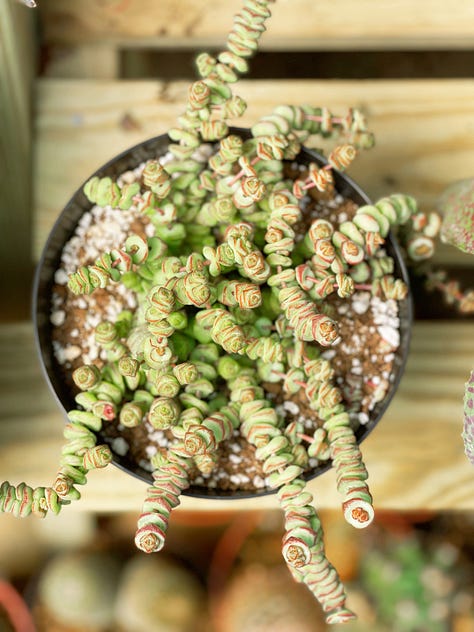
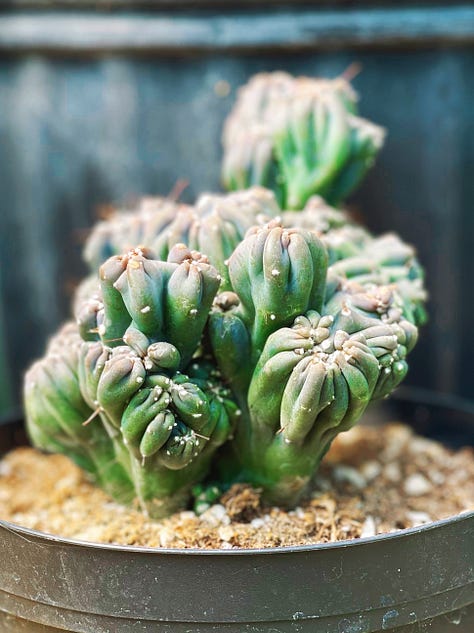


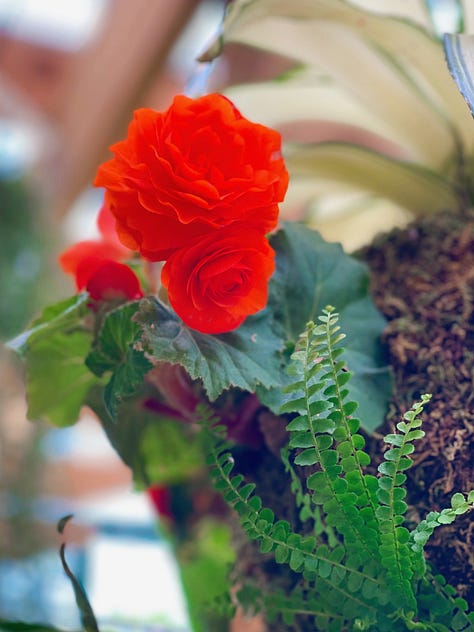



Of Note
I’m off of social media for the month of June but I didn’t want you to miss this latest episode of Refine{d} the podcast, that was sparked by a single comment made by fellow artists and Substacker,
. In my next article here, I will dive deeper into some of the things shared in this episode, including more from my talk given at Refine {the retreat}."Wow is the praise prayer. The prayer where we're finally speechless — which in my case is saying something. ... When I don't know what else to do I go outside, and I see the sky and the trees and a bird flies by, and my mouth drops open again with wonder at the just sheer beauty of creation. And I say, 'Wow.' ... You say it when you see the fjords for the first time at dawn, or you say it when you first see the new baby, and you say, 'Wow. This is great.' Wow is the prayer of wonder." Ann Lamont, Via NPR









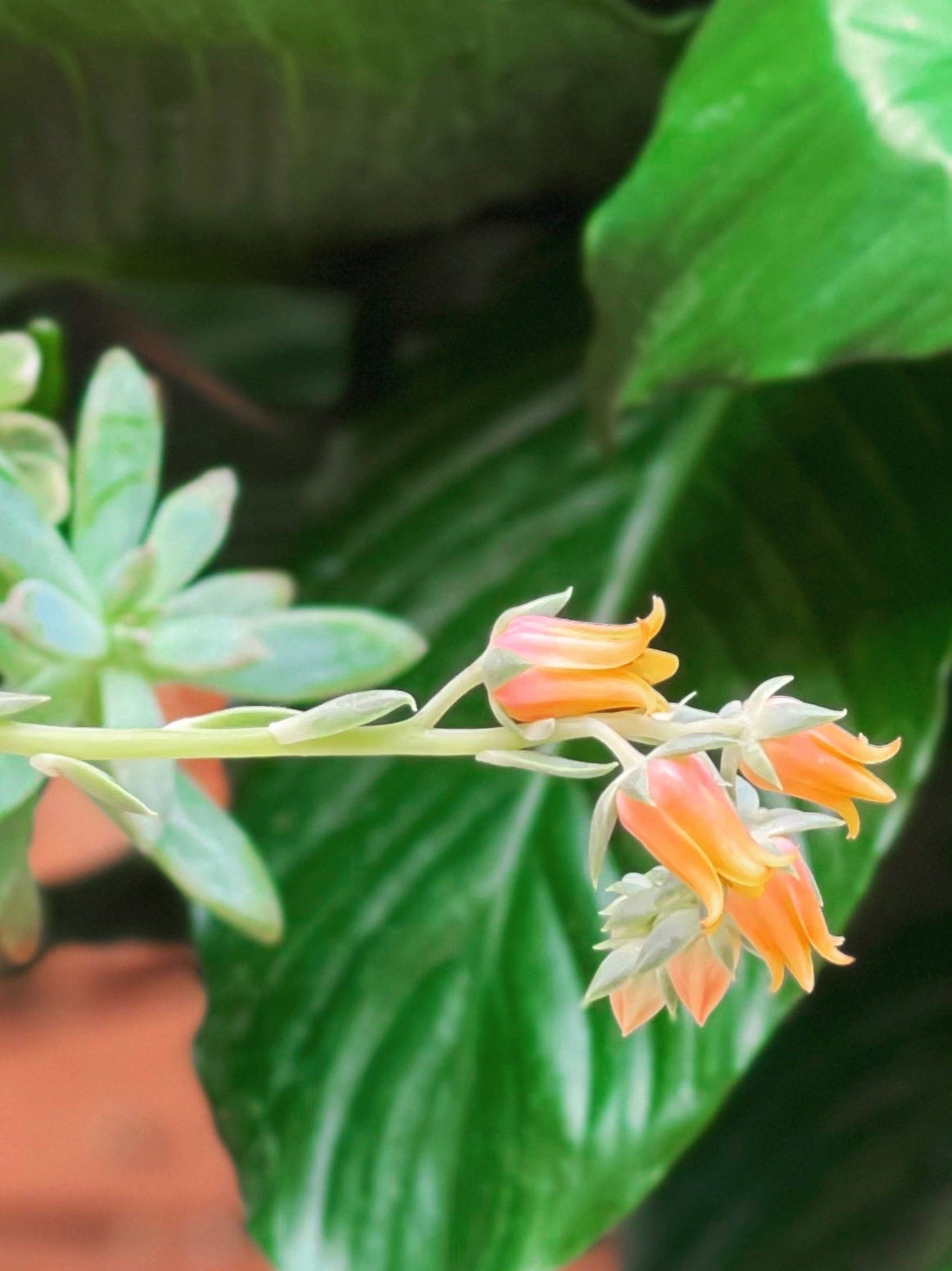
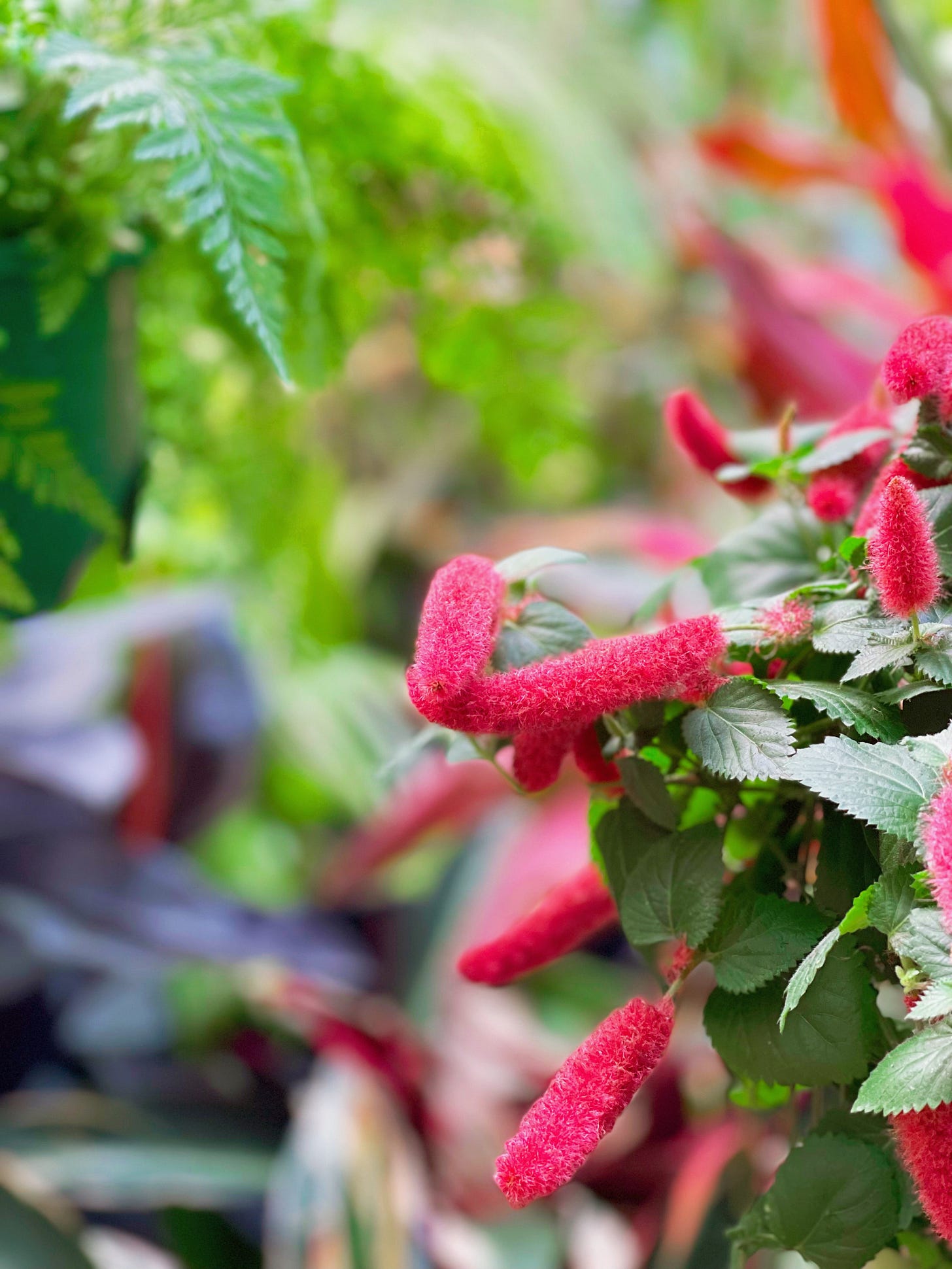
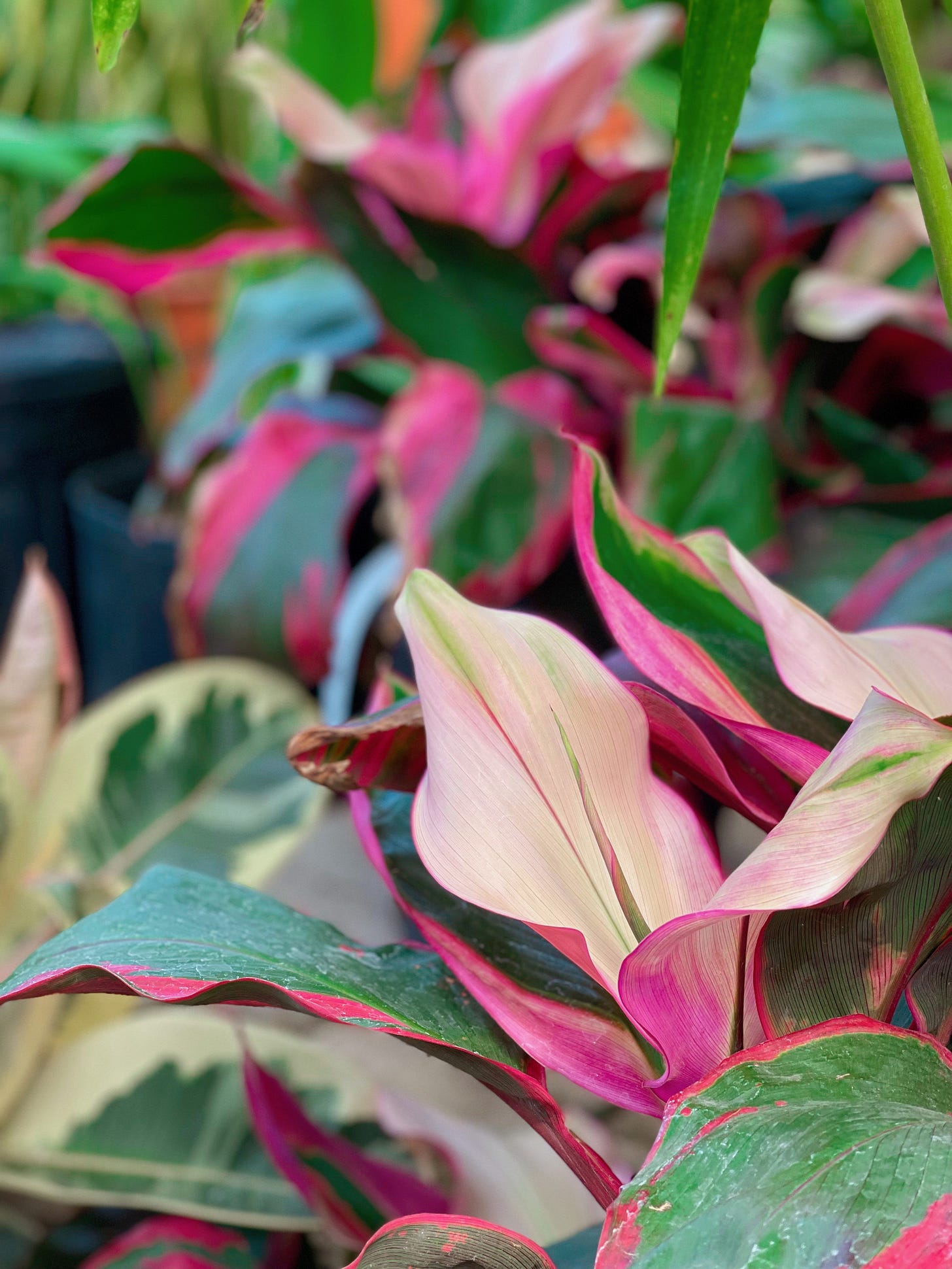
Thank you for sharing your artist’s date and this beautiful reflection on wonder. Beauty constantly draws me back and makes me feel more childlike, more in-step with God, when I get low to notice. For some reason the tiniest things creation usually make me feel the most awe--like that tendril extended out to meet you. Love this 🖤
Some really great wisdom and quotes in this! Love the Mary Oliver quote so much. That one really resonates with me. Saving to read this again. Thank you for this post!